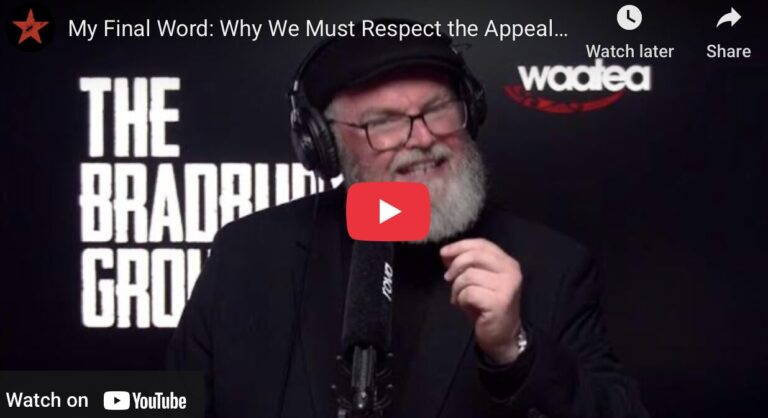GUEST BLOG: Ben Peterson – What politicians don’t want you to know about immigration
It looks like everyone in parliament agrees. The four biggest parties have all recently spoken about the need to reduce immigration. Specifically, it has come up in response to problems of unemployment and unaffordable housing. It seems all politicians agree- immigration policy holds the key to these social issues.
But politicians have a little secret… this is all bullshit.
Immigration is not a central cause of unemployment, and not the key driver of the explosion in housing prices. Even dramatic reductions in immigration numbers will have little impact.
What drives housing prices and unemployment.
It is a simple logic. Not enough jobs and houses to go around- cut immigration until there is. Problem solved?
Well, no. Not at all in fact. This simple formula misses how these problems formed and what is driving them.
Take housing. Historically, NZ had a high level of home ownership, as well as a strong state home sector. In practice, housing was a right, and even the poor largely had access to safe, if modest homes. What changed? A range of things. Decreasing wages since the 80’s made home ownership less and less affordable for many working people, and for the wealthy as the pool of renters increased, the returns on investment properties increased. As more and more investment money became available, housing prices steadily increased. All these factors were there when NZ had more people leaving than immigrants coming in, so cutting off the immigrant flow now will do nothing to touch these deeper dynamics.
Immigration looks similar. For decades, full employment was a government policy. Government economic policy was structured around making sure that there was a job for everyone who needed one, and they were largely successful. Again, this changed in the late 70’s and 80’s. Instead of trying to eradicate unemployment, government policy changed to accept some unemployment as a reality. So cutting off immigration isn’t going to create new jobs, or change the gears of the economy to put people first. Even if unemployment dropped temporarily, it would soon return.
So why do pollies play the immigration card if it’s not getting to the root of the problems? To understand this, it helps to understand the pressures that they are under.

The Politicians dilemma.
To be a good politician you need to do two things.
Firstly, you need to come up with a set of messages and policies that appeal to the electorate. A politician need to be able to make a case for themselves as a candidate that can convince as many people as possible to vote for them. They need to look like a better and more credible option than the others.
The less obvious challenge is just as important. A politician needs the resources to get their message out. They need money to pay for staff and professional advertising. TV, Radio advertisements, leaflets for letterboxing, gear for volunteers to use, websites and databases. It doesn’t come cheap. Even the most charismatic and inspirational politician needs some sort of resources, or at least will need resources in comparison to their opponents.
For mainstream politicians and political parties this creates a dilemma. On one hand you need to pander to ‘the people’, on the other to your potential financial backers. The two are not the same.
If you look just at polling data- the biggest issues concerning New Zealanders are poverty/inequality and housing. Logically, the road to political success would be for politicians who can articulate a solution to these problems. Unfortunately, it’s not so simple.
The government policies that cause the housing crisis and inequality turn out to be very profitable for those with lots of money. For example, more than a third of the 2016 Rich List members have investments in property, real estate or development. Housing prices are largely being driven up by these investors seeking strong financial returns. These same investors are the same people who can fund- or not fund- a politician’s campaign.
Even if a politician found other avenues of funding, it doesn’t fix the problem. These big investors might pour resources into opponents.
Whats all this got to do with immigration?
Turning immigration into a political issue actually creates a useful center point between these two poles. Blaming immigration gives politicians a card to play to pander to people legitimately concerned about economic issues. To many, it doesn’t matter that immigrants aren’t the cause- when so many politicians repeat the same lines, can seem like a credible solution.
And for investors, at worst this keeps the Auckland housing money flowing. At best, constraints on richer immigrants might undercut a potential rival in the business of property investing.
It’s an easy system. It doesn’t matter if it’s based on lies. It doesn’t matter if it drives racist myths that lead to serious problems for migrant communities. It keeps the wheels turning until the next election, and for career politicians, that’s all that matters.
Is there any room for optimism?
How can there be any room for hope when politicians are caught in this dynamic that leads them to such cheap lies?
The answer is simple- we shouldn’t have hope in conventional politics. If politics is left up to professionals and big funders, then they will always be caught in these tensions. No matter how principled the politico in the middle, the same pressures will leave their mark.
But it doesn’t need to be this way, and rejecting politics as usual can create the space for a real alternative.
An alternative can’t be built purely by charismatic politicians, we need strong organisations of ordinary people.
This is why organisations like unions are so important. It shows an organisational model that can generate build a power that can counteract the corruption of big money. Mass memberships can generate resources, and when people come together in strong, participatory, democratic organisations they can generate more power than we even can by ourselves.
Unfortunately, this can never be done while people are divided against migrant communities. Next time a politician tries to say they way we will fix housing/education/healthcare/jobs by cracking down on immigration- remember that person is a liar. That politician thinks that you’re gullible and will believe anything. And that politician believes that a millionaire’s money is worth more than responding to your needs.
Organise, and show them they are wrong.







Well said Ben.
It’s sad to see the left continue to blame victims of capital (immigrants).
Trump will deliver sweet-fuck-all to the working class of America, and neither will the conservative nationalism from Labour & Co.
The left needs to foreground class in its critiques and strategy. Ridding NZ of immigrants (al la Trump) might free up a few jobs and houses, but those are insecure jobs at poverty wages and shitty housing will still be controlled by the (Kiwi) property speculators.
Why are the left so scared of foregrounding class?
Fatty, most of us are blaming the neoliberal system not the migrants! Migration is just a way for the neoliberals to keep their profits up by adding in new consumers with foreign money to buy stuff and keep wages low so that their ideology looks like it actually works. It doesn’t!!
It also helps the neoliberal right stay in power because it creates artificial competition amongst people and the locals are told they are not competitive enough – and if they just worked harder, were more educated, never went out and had what it takes, they too could get ahead. Keep voting right so that the dole bludgers don’t steal your taxes. sarc.
When the alternative left are also spouting the neoliberal message thinking that is what people want and if you tinker by taking more taxes from the middle and give to the poor then all will be tickety boo. 20 years ago bringing in cheap non unionised labour was frowned on and called scab labour. Migration is just the 21 century equivalent.
20 years ago they offshored the jobs. Now they realise that locals can’t afford to keep buying stuff in their local countries because all the wealth has become top heavy, so we now have government people trafficking migration to make sure their are enough consumers with new money to keep the old world economies afloat.
Natz favoured migrants come from places that do not even have a democracy. Some have the worst levels of violence for women or believe that some people in society deserve to be poor and treated badly. All have greater levels of corruption. So we are getting an influx of people who think in a completely different way. Giving donations to the dominant political party and get key roles is how some cultures have been taught to get ahead.
What I would like to advocate is that being less competitive has advantages for society. You don’t want to pollute every last inch of the planet, you don’t require a mansion with 2 pools and a helipad, you don’t spend your days on cruise ships polluting the oceans. Maybe you just want to live a clean and pleasant life without feeling you are competing against the world but collaborating instead and actually take a breath to enjoy the diversity of our environment instead of destroying it (and society) to suck a short term profit out.
“Fatty, most of us are blaming the neoliberal system not the migrants!”
Then you will agree with what I said, and you should have stopped after that sentence.
But you didn’t. You went on to blame immigration.
The problems from neoliberalism will happily exist (and can easily become more prominent) even after reducing immigration. I understand globalisation is an aspect of neoliberalism, but it’s not its defining feature. I’m against Nationalism and capitalism. Blaming immigration strengthens the former and perpetuates the latter. Blaming immigration is a waste of time
Immigration is propping up neoliberalism. Without it, the system will collapse and our government will be forced to change to a better system.
Why do you think many worldwide voters are voting for anyone who will break up the system.
Only a few loonies believe in far right immigration hate stuff and I don’t believe the mainstream immigration debate is about ethnicity or religion, it’s about the economic system that is abusing the citizens and if the lefties refuse to listen, then voters will vote to those that want to break the system and at the moment some of those are far righties like Trump or UKIP.
The lefties would prefer to think they are right about neoliberalism and push voters away than to actually listen and work out what are the real life issues voters are reacting to.
“Immigration is propping up neoliberalism”
I disagree.
I get your point if you are foregrounding globalisation in your understanding of neoliberalism, but I don’t. I see neoliberalism as a class based project, and therefore I think we can easily have nationalistic neoliberalism (as proposed by Trump, May and Little).
I agree with David Harvey’s points here:
https://www.youtube.com/watch?v=wb6rhHyJJ_4
“The lefties would prefer to think they are right about neoliberalism and push voters away than to actually listen and work out what are the real life issues voters are reacting to.”
There’s a difference between listening to people who blame immigration, and applying their ‘solutions’. I listen and understand the argument behind blaming immigration, but I don’t agree with it and I think it will not solve the class inequality (I assume that’s the problem we’re both trying to solve?). I’d rather solve the class inequality, instead of employing the solutions that will not work.
Think of Sky City importing in 600 migrant Chefs so they can pay less wages and put them on zero hour contracts and therefore get more profits.
If they were refused the immigration by governments then they would have to employ local chefs who would refuse to work for them unless they had market rates with reasonable working conditions. Then Sky City would have to confront their working conditions or lose business to other eateries who could adapt.
They might have to have to invest in training Chefs etc
After reducing the wages of their working class workers Neolibs are going after reducing wages and conditions to their white collar workers. Soon there is a top heavy economic structure with the majority of people in Precariat work and a few who control the entire system.
The class war in NZ as more a dividing of people into precariat workers (who are not even workers they are often self employed or contract workers) which is getting greater as more crony and unfair deals and legislation occur and this has become the norm within different countries.
The final blow was finding out with the Panama papers that the global elite (Politicians and Hollywood were big tax cheats) can “semi” legally not pay any taxes by storing them offshore was the final straw. For years the left parties have been told that if joe public paid more taxes then we could get more but most people have worked out that taxes are being creamed off and have become an accountancy vehicle to pay little or nothing from the super rich.
The public is trying to crash the system with Brexit and Trump votes, because their preferred left Candidate Sanders and Corbyn are unfairly selected out from the system.
Yes Trump might be a Nationalistic Neolib but the alternative of a Clinton Global club of neolibs trucking along telling everyone how great they are, invading or provoking countries and controlling the media, pushing out real socialist candidates was just as unpalatable and harder to defeat.
Immigration is not required to push wages down. As Ben said, wages were going down relative to worker productivity even in years we had more emigration than immigration. Neoliberalism pushes wages down by imposing restrictive state regulation on union organising (eg laws denying the right to strike), and keep unemployment benefits at starvation levels. Immigration is a red herring.
As for chefs, the real reason they are being encouraged to immigrate is that there is actually a shortage. Half-trained chef students here in Ōtepoti can head up to Queenstown and get a job with a very competitive salary. So chef wages are not even going down, you just assume they are, because that is required to fit your theory. I suggest you modify your theory to fit the reality instead of vice versa.
How about employing some unemployed people or training some students….. or do you believe the government statistics that we have low unemployment and 1 hour a day work constitutes as employed.
Prior to National getting in, immigration was limited to actual high skilled shortages not something that someone can learn in a 1-2 year course. Home economics and woodwork should be making a come back in the schools if being a chef (or builder) is so important – but I don’t thinks that’s happening…
The so called shortage of chefs is laziness by an industry that wants hand outs and can’t be bothered to pay decent rates and invest in the industry.
https://thedailyblog.co.nz/2016/08/07/must-read-migration-chefs-and-essential-skills/
In short we have high skilled Kiwis being driven out by low wages and being replaced by lower waged less skilled migrants in the most part.
The more skilled migrants don’t last long in this country as they are driven out by the low wages just like the high skilled Kiwis.
I agree we have always had an issue with being a low wage economy, but essentially I’d like to see the employers forced to raise wages and conditions by not having lazy immigration to prop them up.
The democrats and the left have been telling us for a long time that record migration is having zero effect on housing and jobs. The neoliberal right is doing the same thing to keep their ideology afloat. Like a ponzi scheme it relys on new punters from around the world to keep more people coming in, or else it goes bust.
A lot of research is actually showing the opposite of what this article is advocating that migration has little effect on houses and jobs.
When looking at the price of Chefs for example they found that by increasing the supply of Chefs using migration, employers were able to lower the wages in this sector.
With housing, analysts told us for years that property was about to bust. But it didn’t. House prices kept going up to a point where those Kiwis that were able to afford a house no longer can, and the types of housing being built, are too expensive for local wages to be able to afford.
To say that having 166,000 working students does not effect jobs and houses is wrong. To say that 67,000 new residents does not effect houses and jobs is wrong. Where do you think these people live and work?
I have no problems with migrants themselves, but there is a cost and the cost is to local people and existing migrants becoming tenants in their own country and becoming second class citizens by being forced out to the fringes of society (literally in Auckland) and also losing their rights and voting power as this is diluted by the massive amount of new people with very different views.
NZ taxpayer has to pay for the extra schools, hospitals, superannuation and infrastructure. That cost is being paid by the local people who do not have the choice of two passports to choose from and to be able to fly off and get better wages else where when things go wrong here.
Having targeted migration is great. Having a free for all, to prop up Countdown and car dealerships is not ok and for National to pretend all is well in the economy.
There is also the type of migrants that National are letting in who vote for National. We have a pitiful amount of refugees for example who probably do not vote for right wing parties. They are not being allowed in.
In parts of Auckland the affordability is defiantly having a positive effect for National but a negative effect for other parties. No wonder National love migration so much!! However it is less clear why the other parties seem to want to prop it up so much. Stupidity???
Likewise with the Greens, there seem to be a lot of Greenwashing lobbyists using them to seemingly become obsessed with housing and creating more of it, and losing sight of what their charter is about, the environment and sustainability.
Having high rise apartments is not exactly going to save us from climate change. The earthquakes should be a wake up call about housing – it can be destroyed very quickly as the environmental crisis continues. How about concentrating on that, shoring up existing housing stock?
And Labour used to be about jobs. Wanting free trade deals that destroy local jobs makes them Nat Lite. Luckily this is changing for Labour.